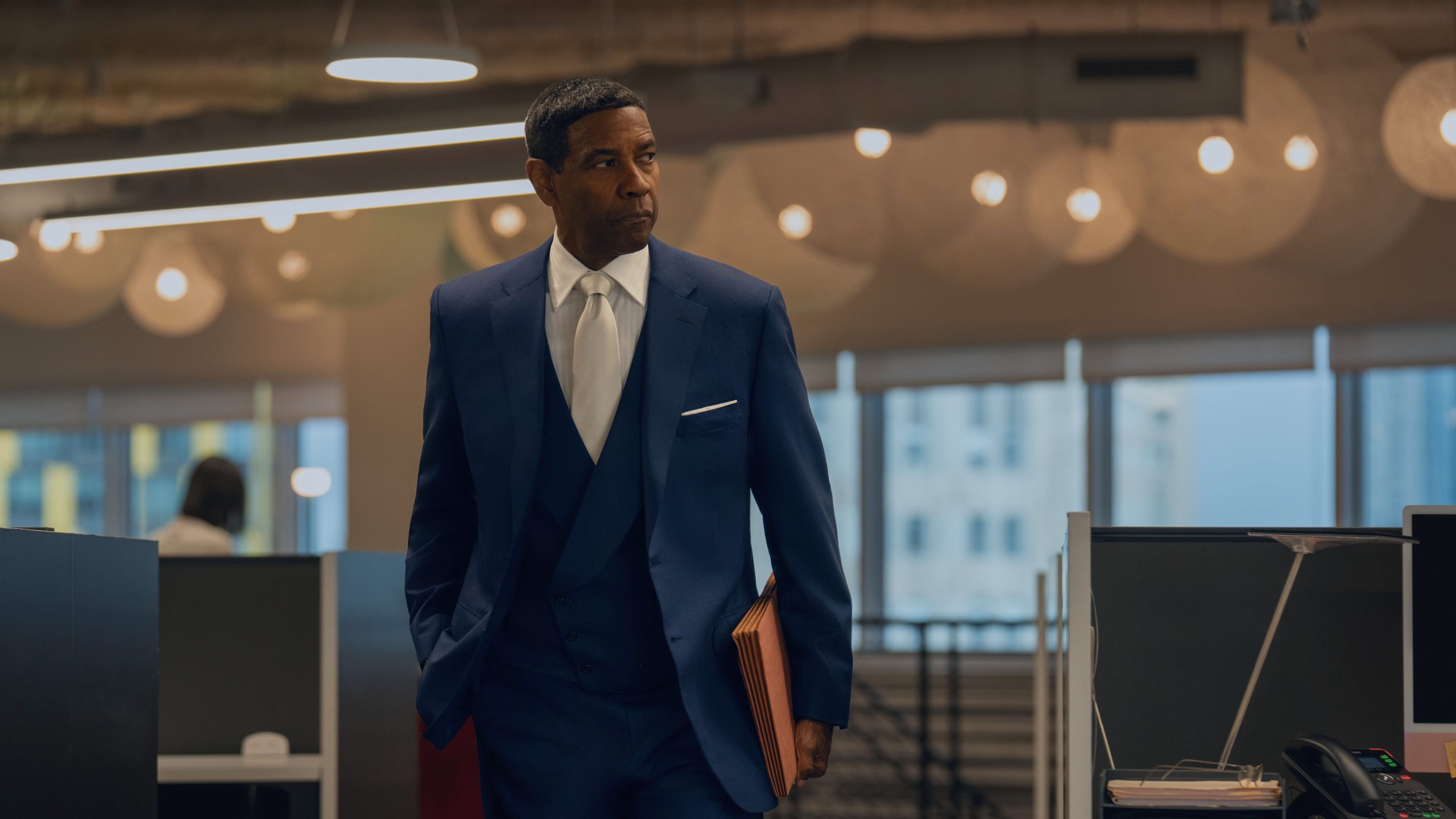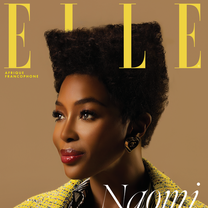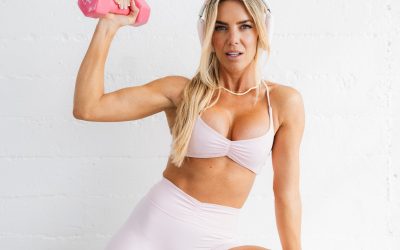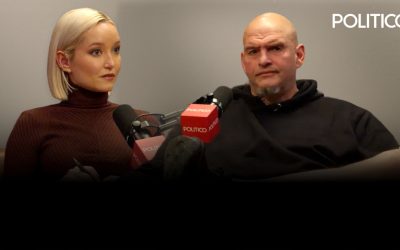Highest 2 Lowest review: Spike Lee + Denzel Washington = Pulse-pounding cinema

At his best, Spike Lee keeps his audience on their toes, never totally sure where he might go next. In Highest 2 Lowest, his latest collaboration with Denzel Washington (Mo’ Better Blues, Malcolm X, He Got Game, Inside Man), Lee is having an absolute blast keeping us off-balance.
Washington headlines this New York City-set thriller as record exec David King, whose wealth, company, family, and legacy are thrown into spin when his son is kidnapped for ransom. Washington has especially been delivering smashing performances as of late in everything from The Tragedy of Macbeth to Gladiator II, but there’s something special here. You can feel the trust between him and Lee as the always-exploring filmmaker plays with tone, frequency, film stocks, and continuity to grant Washington the space to experiment and thrive.
Rather than a cold ransom drama built on the shoulders of a glowering leading man, Lee trusts Washington to brandish that signature smile as freely as his Academy Award–winning snarl. But the movie star also gets to flex some less tested moves and emotions. This makes for some sequences that play peculiarly on a first watch. But on reflection, what Lee and Washington set up in a discomforting first act lays the groundwork for a climax that hits like a subway train.
Highest 2 Lowest delivers a tale of mistaken identity and hard-won justice with Spike Lee flair.
Credit: A24
Screenwriter Alan Fox adapted Highest 2 Lowest from Ed McBain’s 1959 novel King’s Ransom, which was previously translated to the screen by legendary Japanese filmmaker Akira Kurosawa in 1963 with High or Low. In the opening credits to Lee’s film, both are cited as source material. All three versions present a wealthy businessman on the brink of a major professional gamble, who is forced to pivot his focus — and funds — when a kidnapper abducts his son. However, Fox making his businessman a record exec who focuses on developing Black artists gives new dimension to this story.
By making King’s business one of preserving Black culture and uplifting Black voices, Fox’s script gives richer texture to his conflict. Surrendering the money means his business deal is dead, so to save his son, he risks sacrificing his professional legacy — if the cops can’t catch the kidnappers. Of course, his son is also his legacy. But what will David do when it turns out that the kidnappers grabbed the wrong kid? Will he pay $17.5 million, potentially going broke and handing over his company in the process, for his godson Kyle (Elijah Wright)?
While David, his wife Pam (Ilfenesh Hadera), and his rattled son Trey (Aubrey Joseph) discuss this matter in their lavish high-rise apartment — which suddenly seems less untouchable — they speak with an eerie calm. Speaking in stilted delivery, David and his family seem numb to the gravity of their situation. Maybe they are shocked that something so low and criminal can touch them all the way up here. Or perhaps this composure, strange as it is, is constructed, a presentation for the public — the police — who’ve invaded their home. Maybe the social pressure to keep cool has even impacted how they react in front of each other.
There’s little yelling. In fact, when Trey shouts at his father, demanding the ransom be paid for his friend, the teen is scolded for the tone he’s taken toward his father. As this goes on, a campaign poster for Kamala Harris hangs on the wall behind them. The reminder to be excellent and smiling even in the face of defeat and indignity is everywhere. Their apartment is elegantly decorated with icons of Black culture, framed copies of books by Maya Angelou and Zora Neale Hurston, paintings, including some of Black pro athletes, and photographs of Stevie Wonder, James Brown, and Aretha Franklin, alongside cover photos of David King himself.
The Kings celebrate and represent Black excellence in their work, their charity, and their home. But is that all just talk if David won’t risk his wealth to save Kyle? To answer that question, Lee — as the title suggests — will leave the high-rise to go down, down, down, to the subways of New York City. Naturally, the 4 train to the Bronx is where the handoff is supposed to happen.
When Highest 2 Lowest cuts to the chase, Lee has us by the throat.
Credit: A24
The film starts slow, purposefully so. The first act drama is all about contracts and high-minded debates about purpose. But once David straps on a backpack full of millions to pay off the abductors, Lee hits his rhythm with purpose, delivering a street-smart, character-driven journey through New York City.
Washington sheds the high-priced suits for an almost incognito look of all-black casual wear topped with a ball cap. As the train fills with Yankees fans, rowdy for game day, the soundtrack becomes diegetic, through the rousing music from the Puerto Rican Day Parade (with a cameo from Do the Right Thing‘s Rosie Perez as herself!) happening below the now-elevated train. The energy of all this activity is propulsive, driving not only the plot forward, but also pulling audiences to the edge of their seats. When all the carefully laid plans of the Kings and the cops go south, my audience rippled with gasps and even a handful of shouts. Lee had effectively made us bystanders on that train, invested in the drama like it was our own. And everything that comes after is Lee relishing the absolute chokehold he has on his audience — even after the kidnapped teen is recovered.
Rather than returning King to business as usual, King is on a quest to reclaim what he lost, and understand why he lost it to begin with. This pulls him out of the facade of control that was his offices, and plunges him onto his old stomping grounds in the Boogie Down Bronx, alongside his friend/driver (a simmering Jeffrey Wright) with a gun on his hip and a showdown with a mysterious rapper called Yung Felon (played by A$AP Rocky) ahead of him.
A$AP Rocky and Denzel Washington are fire together.
Credit: A24
Without giving too much of the plot away, King and Felon are destined to come face to face. Where one came from the heights of a high-rise, the other’s recording in a grimy basement studio. But both are gamblers who made music their biggest risk, and it’s ultimately put them at odds. Rocky, who also has a role in this year’s If I had Legs I Would Kick You, is mesmerizing as this ferocious rapper, spitting bars with the same confidence he exhibits while slinging insults at Washington’s King. Washington meets his intensity, but not his energy. The power dynamic favors the older man, and so Washington leans into a condescending calm, a king on a throne staring down at a fool.
Rocky and Washington are extraordinary, channeling passion, rage, and self-righteousness into explosive exchanges both personal and political. These two deliver some of the best scene work in a movie this year. But it wouldn’t hit as hard as it does if it weren’t for Lee’s careful construction of the film’s first act. To appreciate where David ends up, you have to understand where he was when we first met him.
See, beyond his business, his family, and his legacy, David is at his core struggling to recapture his passion for the music. It’s a problem his wife identifies during a scolding on the balcony in act one. But it’s a dissonance that Lee sets up with the opening song. Though King’s whole career has been dedicated to Black artists in rap and R&B, the song that plays over the movie’s first moments — when we first see King high up on his Brooklyn balcony overlooking the Manhattan skyline — is “Oh, What A Beautiful Mornin’,” the cheerful farmer tune from Rodgers and Hammerstein’s Oklahoma!
Its folksy attitude clashes with the iconic views of New York City’s urban landscape of glass and steel. The jaunty singing of cowboy-hatted Gordon MacRae is willfully jarring against the stony expression of David King in his sharply tailored suit. It’s genuinely funny — though not as funny in the deeply NY way as Lee’s later swipes at the Celtics and charming dad jokes about “Jake from State Farm.”
Lee begins by pushing the viewer off-balance with this earnest, out-of-place song, because music mogul David King is so out of touch with his own musical inspirations at this moment. It’s not until King is back on the streets that he can reconnect with that passion, that energy of New York that Lee captures so well. And there’s a twisted pleasure in Washington’s performance, recognizing this thrill even as the hunger for it could ruin King’s whole realm.
Lee is incredible. With Highest 2 Lowest, he richly reimagines Kurosawa’s film within his own lens, showcasing Black pride and New York pride with great joy. With this, Lee grants Washington the room to move, taking big swings as his character does, and delivering one of his best performances in a decade. To that, Rocky and the ensemble bring an intoxicating vibrancy, especially in the film’s second half. All of this builds to create an ending that will make you want to stand up and cheer.
This is a journey. This is a ride. Highest 2 Lowest is Lee and Washington, reunited and good as ever.
Highest 2 Lowest opens in theaters on Aug. 15, debuting on Apple TV+ Sept. 5.
Mashable






